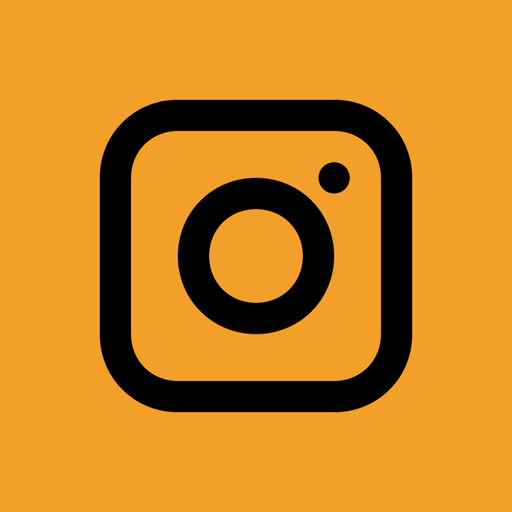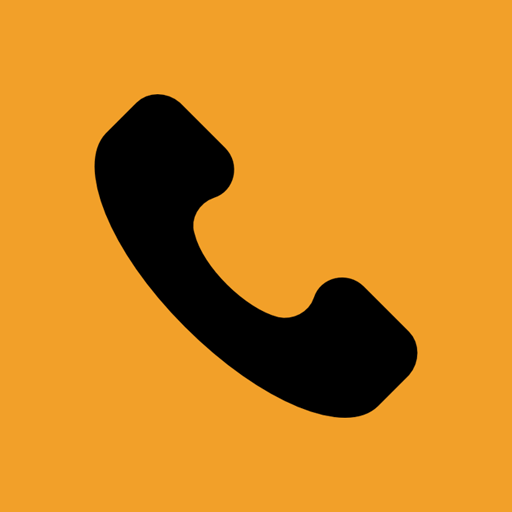CARING FOR YOUR CHILD’S HEARING
Pediatric Hearing Services in The Philippines
Need Checkup?

Understanding the Importance of Pediatric Hearing Evaluations
A pediatric hearing evaluation is an essential evaluation designed to assess the hearing capabilities of infants, toddlers, and children, pinpointing any hearing impairments or losses at their earliest stages. Early detection through these screenings is paramount, as it enables timely interventions that are critical for a child’s holistic development, including their speech and language skills, social interactions, academic achievements, and emotional well-being.
Understanding the paramount importance of early detection can mitigate the adverse effects of hearing loss on a child’s development. Child hearing screenings enable healthcare professionals to identify and address hearing loss promptly, allowing for interventions such as hearing aids, cochlear implants, or specialized therapies. These measures can significantly enhance a child’s ability to communicate, learn, and interact, thus supporting their development and ensuring they can fully engage with the world around them. By prioritizing early detection and intervention, we can help children with hearing loss achieve their full potential, fostering a supportive environment for their growth and success in all facets of life.
Knowing When to Schedule a Hearing Test for Your Child
Identifying the need for a hearing test for your child involves being attuned to signs of potential hearing issues. Firstly, it is essential to consider the risk factors that could predispose your child to hearing loss. These include a family history of hearing loss, premature birth, consistent exposure to loud noises, recurrent ear infections, and specific medical treatments or conditions known to affect hearing.
Beyond these clear risk factors, it’s also crucial to observe your child’s behavior and responses in everyday situations for more subtle signs of hearing difficulties. Here are nuanced indicators that might suggest the need for a hearing screening:
Lack of Response to Sounds
Observing how a child responds to sounds can provide early clues about their hearing abilities. A noticeable lack of response, such as not turning towards a source of sound or failing to react when their name is called, could indicate hearing difficulties. This behavior might seem like inattention or selective listening, but it is crucial to recognize it as a potential sign of a deeper issue. Such indicators warrant further investigation through a pediatric hearing evaluation to determine if hearing loss is affecting the child’s ability to engage with their environment.
Delayed Speech Development
Speech and language development are closely tied to a child’s ability to hear. When a child experiences hearing loss, it can significantly impact their acquisition of language skills, leading to delays in speech development. If you notice that your child is not hitting their language milestones, such as babbling by a certain age or forming words and sentences in line with their peers, it could be a sign of hearing impairment. Early detection and intervention are key to addressing these delays and supporting the child’s communication skills.
Frequent Misunderstandings
If a child often seems to misunderstand instructions or has difficulty following conversations, it could be a sign of hearing issues rather than simply not paying attention. These misunderstandings can occur in both one-on-one interactions and group settings, indicating that the child may be struggling to process auditory information accurately. This challenge can lead to frustrations for both the child and those around them. Recognizing these signs as potential indicators of hearing loss can prompt timely assessment and support.
Increased Volume on Devices
A child’s preference for higher volumes on devices such as TVs, tablets, and other electronics can be an early indicator of hearing loss. If you find yourself frequently noting that the volume is higher than what seems necessary or if the child insists on increasing the volume to levels that are uncomfortable for others, it is important to consider a hearing evaluation. This behavior suggests that the child may be compensating for reduced hearing ability, trying to make it easier to listen to and understand auditory content.
Different Types of Hearing Tests for Children
Hearing assessments for children are crucial at various stages of their development to identify and address potential hearing issues as early as possible. The nature of hearing tests in the Philippines varies with the age of the child, taking into account their ability to respond to auditory stimuli and cooperate with the testing process. Each age group – from babies to toddlers to older children – requires a distinct approach to accurately evaluate their hearing capabilities.
Hearing Test for Babies
For newborns and infants, hearing tests are designed to be non-invasive and do not require active participation from the baby. One common method is the Otoacoustic Emissions (OAE) test, which measures sound waves produced in the inner ear in response to clicks or tones. Another method is the Auditory Brainstem Response (ABR) test, which assesses how the auditory nerve and brainstem respond to sound through electrodes placed on the baby’s head. These tests are typically performed soon after birth, often before the baby leaves the hospital, to ensure any hearing impairments are identified early, allowing for prompt intervention.
Hearing Test for Toddlers
As children grow into toddlers, hearing tests adapt to engage their burgeoning sense of curiosity and limited attention span. Visual Reinforcement Audiometry (VRA) is commonly used for this age group, where toddlers are taught to associate sounds with visual rewards, such as animated toys or a lighted display. This method effectively assesses hearing by observing the child’s responses to sounds in a controlled environment, making the evaluation both accurate and child-friendly.
Hearing Test for Older Children
For school-aged children and older, hearing assessments become more interactive, involving the child’s active participation. Pure Tone Audiometry is a standard test used, where the child wears headphones and indicates each time they hear a tone, helping to determine the quietest sounds they can hear at different frequencies. Speech Audiometry is another critical test that assesses the child’s ability to hear and understand words at different volumes and clarity. These methods require the child’s cooperation and understanding of the instructions, providing a comprehensive evaluation of their hearing capabilities.
Our Pediatric Hearing Services
Visual Reinforcement Observation Audiometry (Update using CMS)
Conditioned Play Audiometry
Auditory Brainstem Response Test
This is an objective test for hearing and brain functioning. The patient is asleep during testing.
Auditory Steady State Response Test
This is an objective test to determine the hearing level of the patient. The patient is asleep during testing.
Newborn Hearing Screening
The newborn hearing screening measures the integrity of the cochlea. It is usually used for newborns.
How to Get Prepared for Pediatric Hearing Services
- Plan & Prepare
Preparing for a pediatric hearing evaluation involves both logistical planning and ensuring your child is mentally ready for the experience. Begin by booking an appointment at a time when your child is typically alert and content, as this can greatly influence the smoothness of the assessment. - Share with your Child what’s going to take place
Prior to the visit, gently introduce your child to the concept of the hearing test. Explain that the hearing specialist will use special tools and games to check how well they can hear, emphasizing the fun and non-intrusive nature of the evaluation. - Turn Up for the appointment
On the day of the appointment, ensure your child is well-rested and bring along a favorite toy or item for comfort. An early arrival can help your child acclimate to the environment without feeling rushed. - Awaiting for Evaluation
After the evaluation, the specialist will discuss the results with you, offering a diagnosis and recommending ways to enhance your child’s hearing health, which may include devices like hearing aids or therapeutic interventions.
For more information about pediatric hearing services in the Philippines, you can contact us today.
Our Pediatric Hearing Specialists
Our team of pediatric hearing specialists is at the core of our excellent hearing center network. Each expert is dedicated to providing personalized hearing aid and device solutions, leveraging their extensive knowledge and experience in the field. Our specialists will conduct screening and provide evaluations for your child’s hearing needs!
Location
Metro Manila
- Room 612 Doña Felisa Syjuco Building, Remedios St. Corner Taft Ave., Malate, Manila
- Monday to Friday, 9AM – 6PM
- (02) 8523 0098
- Get Direction
- Book an Appointment
- Inside Lourdes Hospital, P .Samchez Street, Sta. Mesa, Manila
- By Appointment
- 71680015
- Get Direction
- Book an Appointment
- NTMT2 L3 ORL Services, Manila Doctors Hospital, United Nations Ave, Ermita, Manila
- Mondays to Fridays, 9 am to 5 pm; Saturdays 9 am to 12 pm
- 5254911
- Get Direction
- Book an Appointment
- ENT Diagnostic Ctr, 2F Tower 2, Amorsolo Street, Legazpi Village, Makati City
- Monday to Fridays, 9 am to 5 pm; Saturdays 9 am to 2 pm
- 9668644571
- Get Direction
- Book an Appointment
- Level 5 Shangri-La Plaza Mall, EDSA, Corner Shaw Boulevard, Ortigas Center, Mandaluyong City
- Daily, 11 am to 8 pm
9056618166- Get Direction
- Book an Appointment
- LGF SM City Marikina, Marikina-Infanta Hwy, Marikina City
- Daily, 10 am to 8 pm
- 9561425389
- Get Direction
- Book an Appointment
- 2/F ENT Clinic, Quezon Avenue, Scout, Sct. Magbanua, Diliman, Quezon City
- Monday to Saturdays, 9 am to 5 pm except Thursdays
- 9564569998
- Get Direction
- Book an Appointment
- Unit 408 4th Level Ayala Malls Cloverleaf, A. Bonifacio Avenue, Brgy. Balingasa, Balintawak, Quezon, 1106 Metro Manila
- Daily, 10 am to 8 pm
09277790807- Get Direction
- Book an Appointment
- 2/F Wellness Lane, Festival Supermal, Alabang, Muntinlupa City
- Daily, 10 am to 8 pm
9179723505- Get Direction
- Book an Appointment
- Inside Eye Center, G/F, University of Perpetual Help Medical Center, Alabang-Zapote Road, Las Piñas City
- Mondays to Fridays, 9 am to 5 pm; Saturdays 9 am to 12 pm
- 09563686124
- Get Direction
- Book an Appointment
Provincial
- 2nd Floor ENT & Audiometry Dept. Out-Patient Department, Southeast Asian Medical Center Inc. Molino III, Bacoor, Cavite
- Mondays to Saturdays, 9 am to 5 pm
- 09277790806
- Get Direction
- Book an Appointment
- LGF, SM City Bacoor Aguinaldo Hiway cor Tirona Hiway, Brgy. Habay, Bacoor City, Cavite, 4102
- Open Daily, 10am – 9pm
- 9274946933
- Get Direction
- Book an Appointment
- G/F, University of Perpetual Help Hospital, National Highway, Sto. Niño, Biñan, Laguna
- Mondays to Saturdays, 9 am to 5 pm
- 9266485064
- Get Direction
- Book an Appointment
- Room 208, 2/F Qualimed Hospital, Altazara Spine Road, San Jose del Monte City, Bulacan
- Mondays to Saturdays, 9 am to 5 pm
- 9277790832
- Get Direction
- Book an Appointment
- 2/F Robinson’s Place Lipa, President Jose P . Laurel Hwy, Lipa City, Batangas
- Daily, 10 am to 8 pm
9271381289- Get Direction
- Book an Appointment
- 2/F SM City Clark, Clark Freeport, Angeles City, Pampanga
- Daily, 10 am to 8 pm
- 454990267
- Get Direction
- Book an Appointment
- 3/F SM City Cabanatuan Brgy. H. Concepcion, Along, Pan-Philippine Hwy, Cabanatuan City, Nueva Ecija
- Daily, 10 am to 8 pm
- 9171666128
- Get Direction
- Book an Appointment
- 3/F SM City Lucena, Dalahican Road, Corner Old Manila South Road, Lucena City, Quezon
- Daily, 10 am to 8 pm
- 423735393
- Get Direction
- Book an Appointment
- Unit 328 3L SM Olongapo Central, Rizal Ave., East Tapinac, Olongapo City Zambales 2200
- 8:00 am to 5:00 pm
- 0926 355 9953
- Get Direction
- Book an Appointment
- 3/F SM Seaside City Cebu, Corner South Coastal Road and Mambaling Extension, Cebu City
- Daily, 10 am to 8 pm
- 9159837014
- Get Direction
- Book an Appointment
- 3rd floor Eye and Ear Center, Qualimed Hispital Donato Pison Ave, Mandurriao, Iloilo City, Iloilo
- Mondays to Saturdays, 9 am to 5 pm
- 9274947065
- Get Direction
- Book an Appointment
- 2nd Floor Festive Walk Mall, Mandurriao, Iloilo City
- Daily, 10 am to 8 pm
- 639270780822
- Get Direction
- Book an Appointment
Have Questions About Pediatric Hearing?
Active Hearing Center has branches across Luzon and Visayas. Find a hearing center near you to schedule a child hearing screening or consultation.
Frequently Asked Questions About Pediatric Hearing Services in the Philippines
What age range do your pediatric hearing services cover?
The pediatric hearing services offered cover a broad age range, extending from infants to adolescents. These comprehensive services ensure early detection and support for optimal auditory development in children. Specializing in thorough hearing tests, diagnostics, and intervention, the team is committed to identifying and addressing potential issues promptly.
For newborns, early detection is crucial, with care specifically designed to address the unique needs of infants. As children navigate through each developmental stage, they encounter unique challenges related to hearing health. Pediatric hearing services adapt to these changing needs, providing customized support to address specific concerns and promote optimal auditory well-being at every phase.
How to recognize signs of hearing issues in my child?
These are the signs your child may need to undergo pediatric hearing evaluation and evaluation at a hearing center in the Philippines:
- Experiencing speech limitations or unclear communication
- Struggling to follow directions or pay attention
- Catching only fragments of conversations and frequently requesting repetitions
- Difficulty hearing everyday sounds such as school bells or announcements
- Encountering challenges in learning




